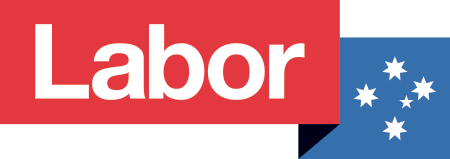Ms BYRNES (Cunningham) (16:37): I rise to speak on the Nature Repair Market Bill 2023. Like many in this place, I want to make sure that Australia's next generation inherits a better Australia than the one that my generation inherited. This includes natural environment and the custodianship of it. Given the challenges that we now face with the change in climate, the task of remediation, repairing and rebuilding our natural environment has only become more challenging. These global forces mean that we shouldn't give up, that we need to become more innovative, more adaptive and more committed to task. That is what this bill before us seeks to do. It would introduce a world-leading voluntary market framework to support landholders in protecting and restoring nature. It establishes our tradeable biodiversity certificate, assurance and compliance arrangements, a public register and a nationally consistent approach for measuring biodiversity outcomes. This will mobilise private investment to protect, manage and restore Australia's natural landscape. In other words, this market will make it easier for businesses, organisations, government and individuals to invest in projects to protect and repair nature.
Establishing the market in legislation will ensure its ongoing integrity. It will encourage investment in nature and drive environmental improvements across Australia. If anything from the past decade of coalition government has shown us, it is that to attract investment you need to provide certainty, transparency and integrity. To achieve this the bill establishes an independent nature repair market committee to advise the minister on scheme integrity. Methodology determinations that set out the requirements for different types of projects must meet legislated biodiversity integrity standards and be endorsed the Nature Repair Market committee. It also includes a consistent way of measuring improvements in biodiversity set out in an overarching biodiversity assessment instrument. It requires biodiversity projects to be undertaken in line with a methodology determination, tradable biodiversity certificates that are regulated to ensure they provide accurate information about projects, a public register of projects and certificates and an assurance and compliance framework to maintain integrity in the market and provide confidence that projects are being delivered as expected.
The Nature Repair Market will be based on science and enable Aboriginal peoples and Torres Strait Islanders to promote their unique knowledge on their terms. Many speakers before me have outlined the unique role that First Nations people will have in participating in this market and the clear crossover it has with the Indigenous ranger program and the work rangers undertake in weed management, controlling feral animals, fire management, saving species and ensuring the health of our waterways and seas. We have many community members active in the program, including my friend Rusty Abbott, who is a passionate trainer of First Nations rangers in our region. Rusty recently explained that on the South Coast of New South Wales in the member for Gilmore's electorate there are now six rangers working in Batemans Bay and a further five in the Wallaga Lake area. There are also set to be more rangers in the years ahead, with programs set up in the New South Wales corrections system to support prisoners to retrain and have the skills and qualifications to become rangers when released and ready to re-enter the workforce.
This government understands the important role that our First Nations Australians play in bringing 65,000 years of knowledge into present-day action. That is why as a government we are doubling the number of Indigenous rangers by the end of the decade. We have declared new Indigenous protected areas and are increasing funding for the management of Indigenous protected areas. We have also nominated the Murujuga cultural landscape in WA for World Heritage listing, incorporating 65,000 years of First Nations conservation into action today—nature-positive heritage protection. We are delivering the $40 million of Indigenous water in the Murray-Darling Basin which was promised by the previous government but never delivered. We have signed a partnership with the First Nations Heritage Protection Alliance to work together to write new cultural heritage protection legislation.
This bill will establish a new market for investing in nature-positive outcomes. It will support Australia's international commitments to protect and repair ecosystems and reverse species decline and extinction. It will generate investment and job opportunities for a nature-positive economy and create new income streams for landholders, including Aboriginal peoples and Torres Strait Islander farmers. More importantly this bill we see before the House today is part of the Albanese Labor government delivering on its nature-positive plan.
The Nature Repair Market Bill 2023 is but one of a suite of policies to protect, repair and rebuild our environment. The Australian government has committed to protecting 30 per cent of Australia's land and seas by 2030. The same goals have been adopted globally under the United Nations Convention on Biological Diversity. These goals reinforce the findings of the Australia state of the environment 2021 report and its story of environmental degradation, loss and inaction—a report which the former minister, now deputy opposition leader, hid from the Australian people, refusing to release it, and we now know why. It is a catalogue of horrors showing just how much damage a decade of Liberal and National party neglect did to our environment.


